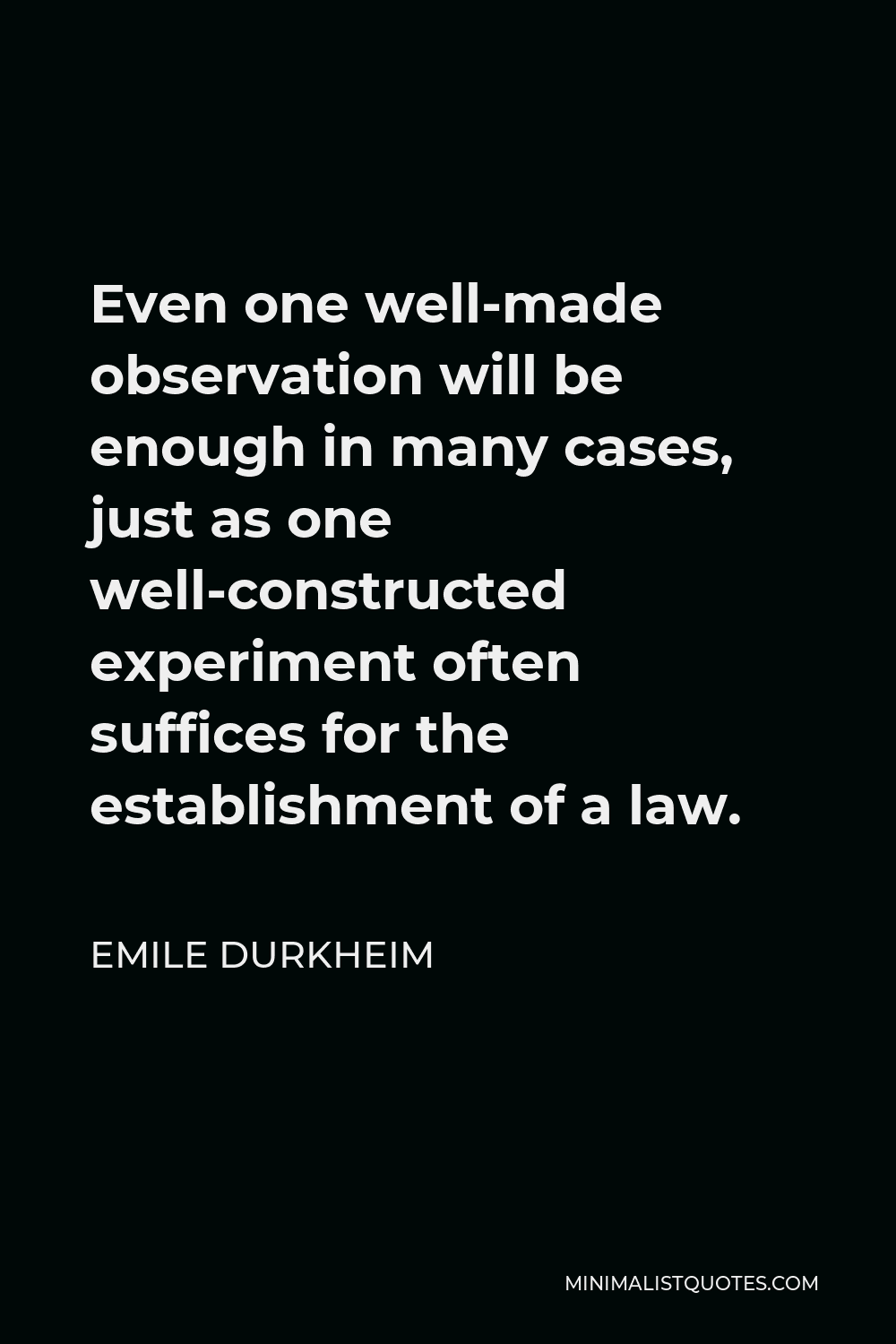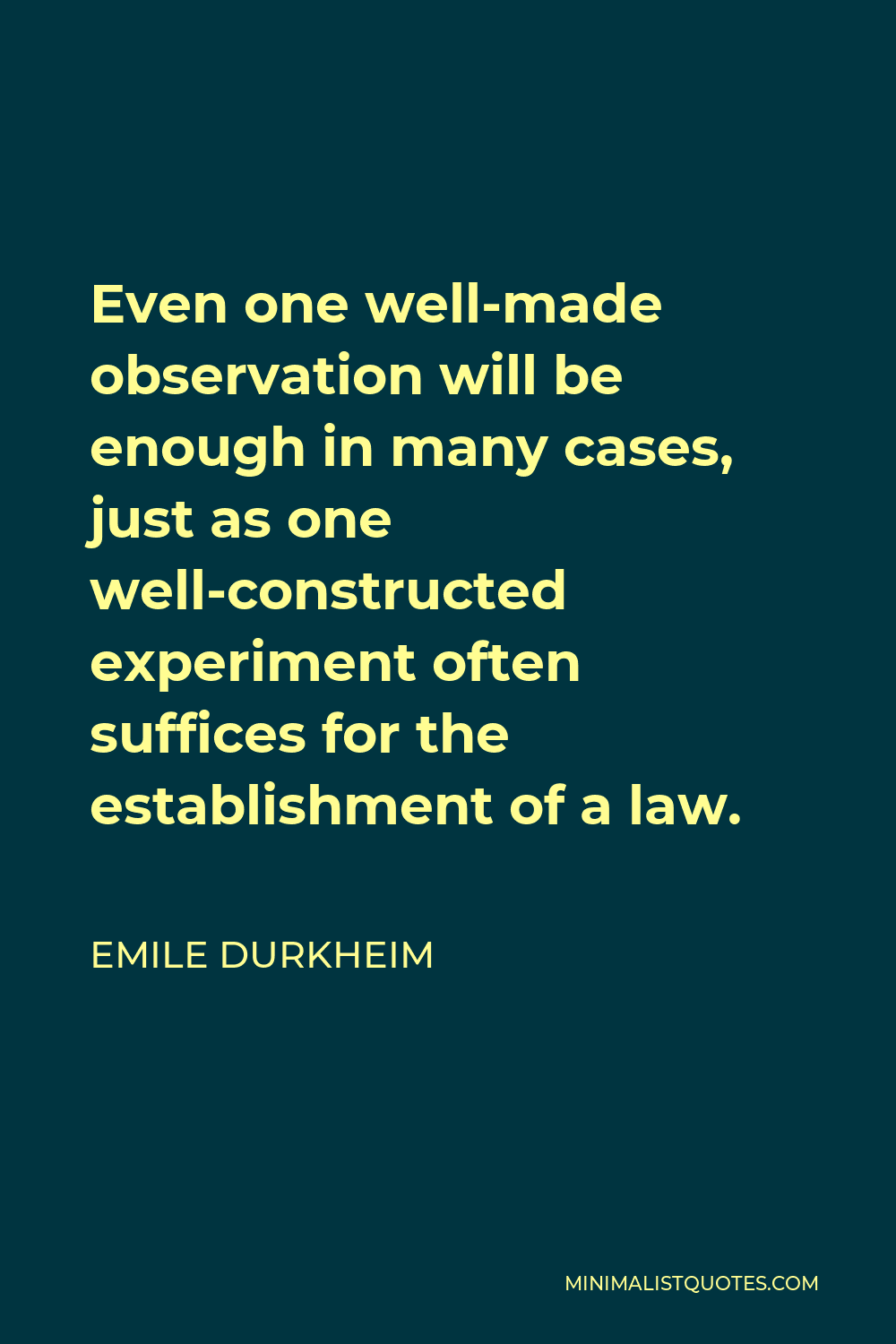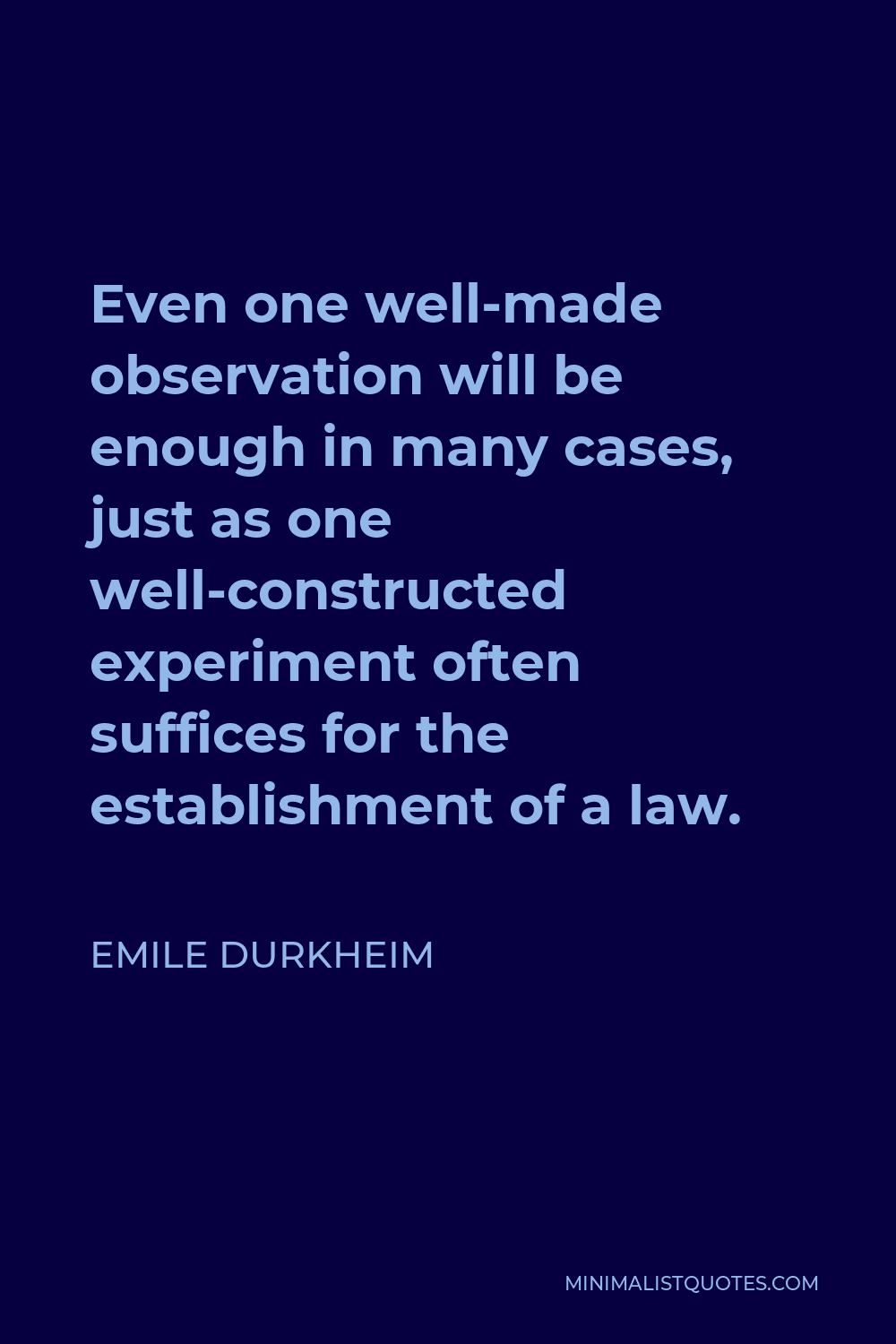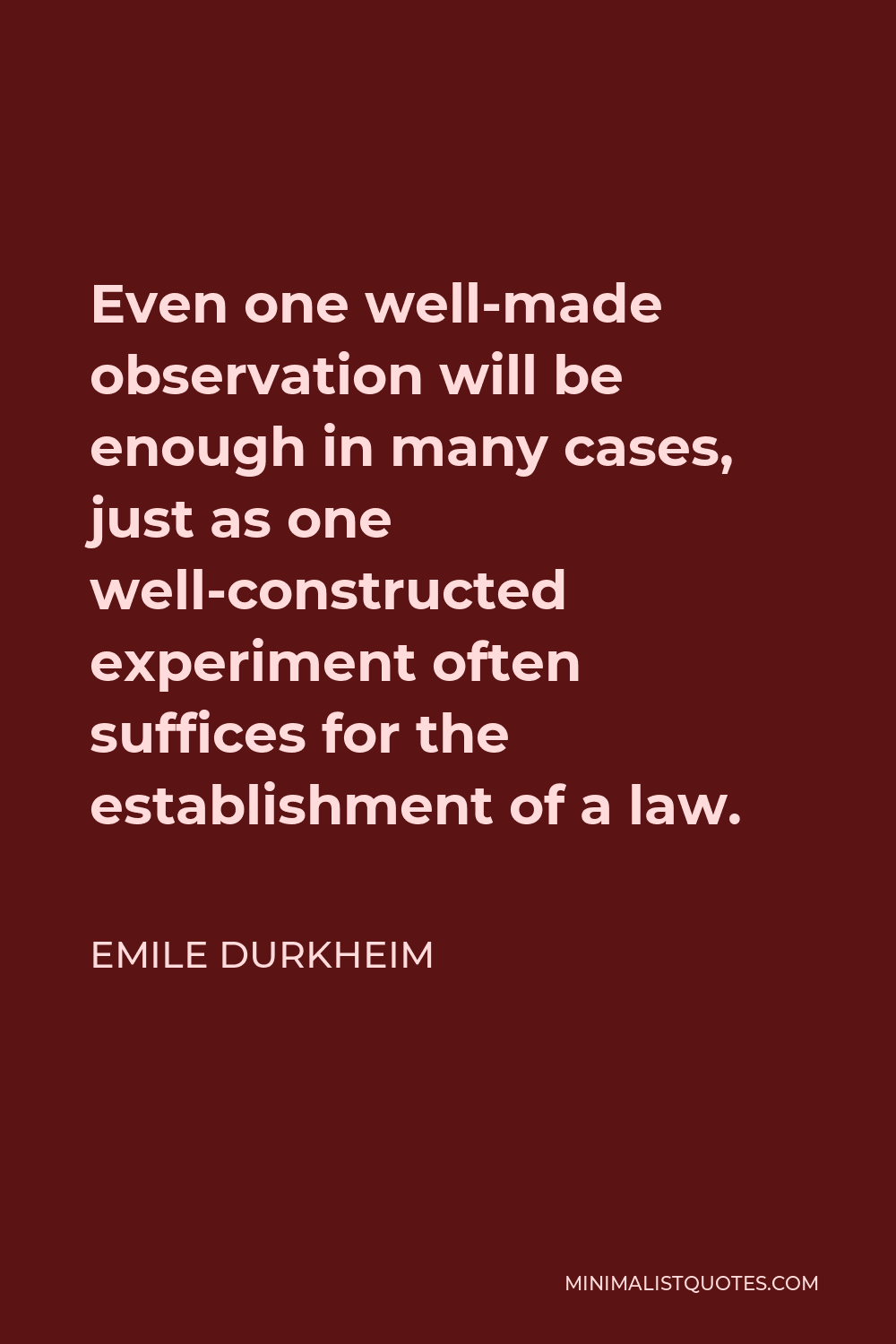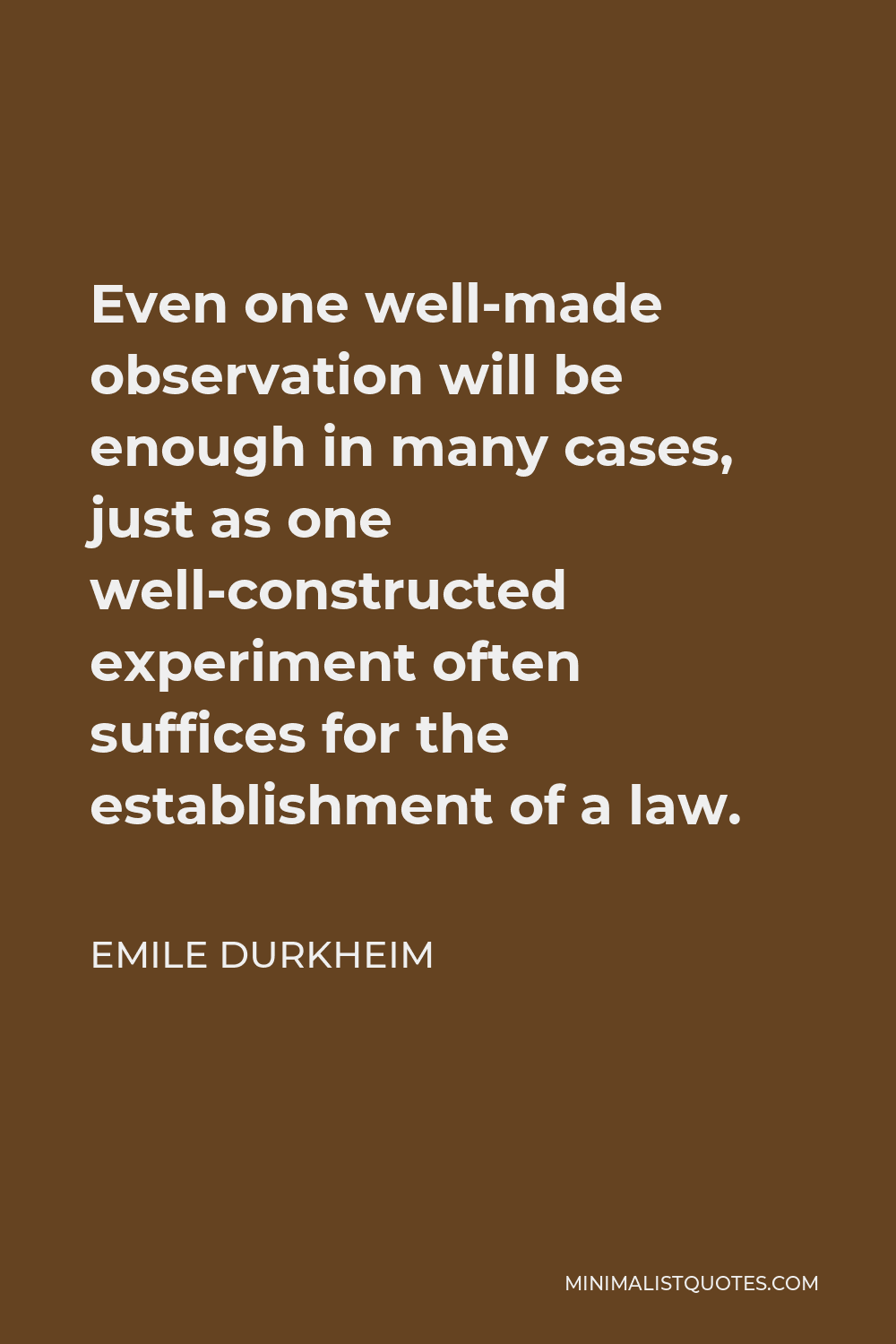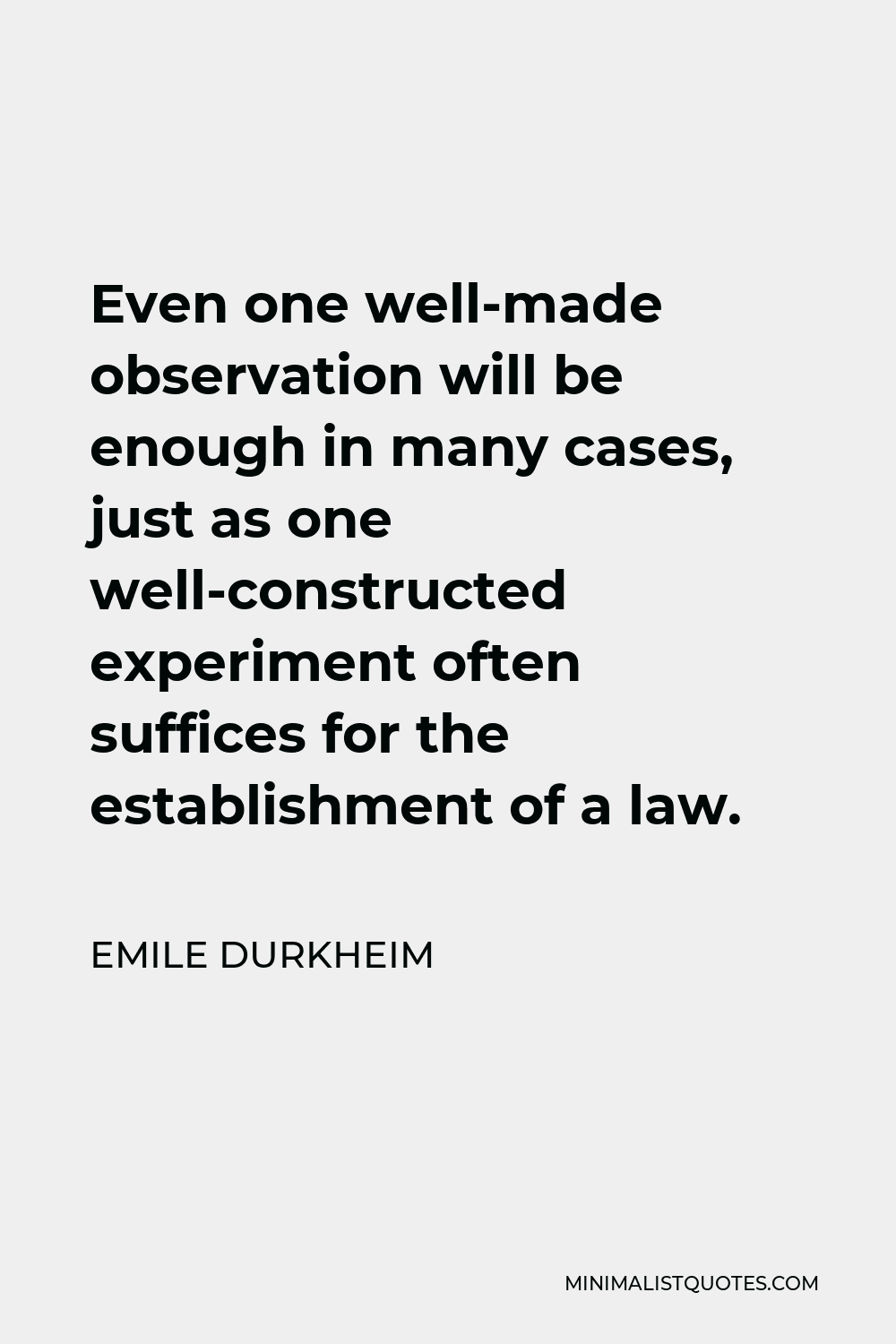Each victim of suicide gives his act a personal stamp which expresses his temperament, the special conditions in which he is involved, and which, consequently, cannot be explained by the social and general causes of the phenomenon.
EMILE DURKHEIMEven one well-made observation will be enough in many cases, just as one well-constructed experiment often suffices for the establishment of a law.
More Emile Durkheim Quotes
-







-







When man discovered the mirror, he began to lose his soul.
EMILE DURKHEIM -







Maniacal suicide. -This is due to hallucinations or delirious conceptions. The patient kills himself to escape from an imaginary danger or disgrace, or to obey a mysterious order from on high, etc.
EMILE DURKHEIM -





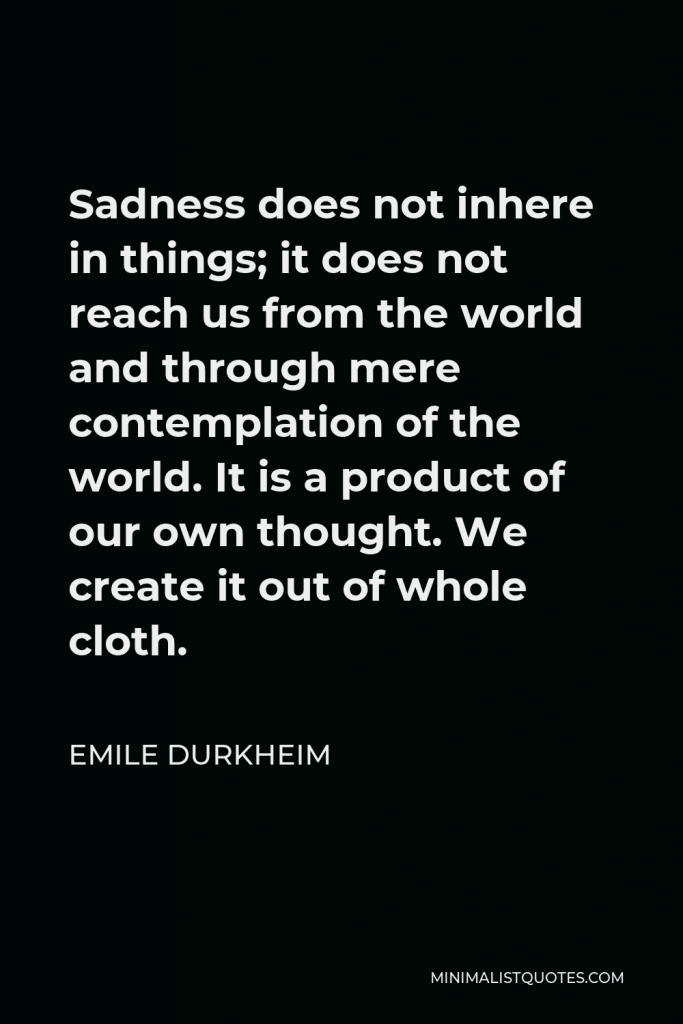

Sadness does not inhere in things; it does not reach us from the world and through mere contemplation of the world. It is a product of our own thought. We create it out of whole cloth.
EMILE DURKHEIM -





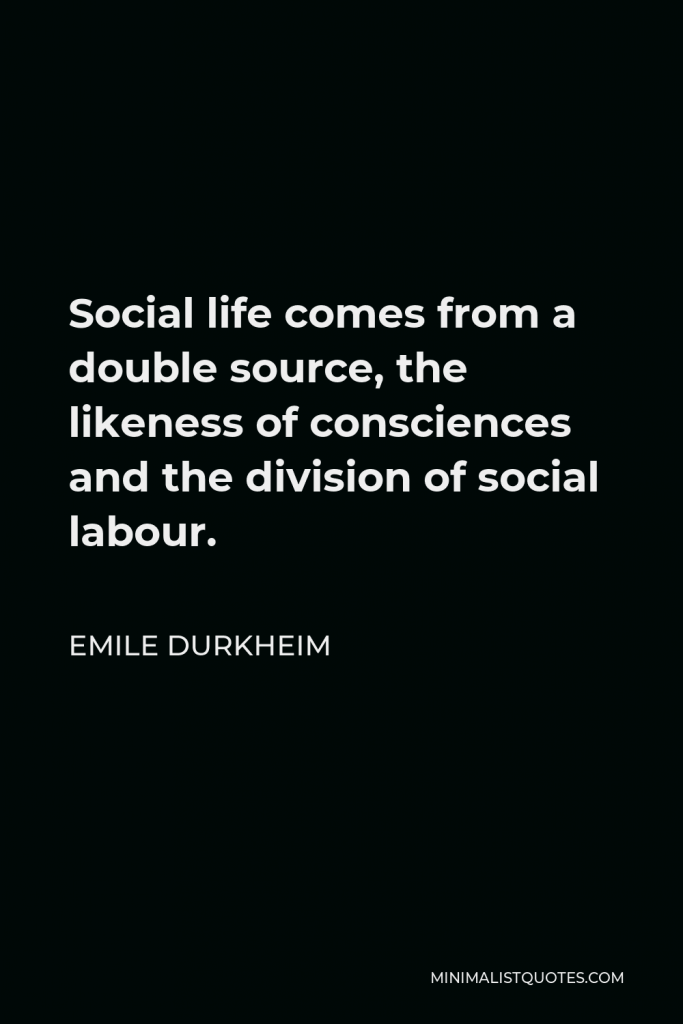

Social life comes from a double source, the likeness of consciences and the division of social labour.
EMILE DURKHEIM -







When mores are sufficient, laws are unnecessary. When mores are insufficient, laws are unenforceable.
EMILE DURKHEIM -







It is too great comfort which turns a man against himself. Life is most readily renounced at the time and among the classes where it is least harsh.
EMILE DURKHEIM -







To pursue a goal which is by definition unattainable is to condemn oneself to a state of perpetual unhappiness.
EMILE DURKHEIM -







The term suicide is applied to all cases of death resulting directly or indirectly from a positive or negative act of the victim himself, which he knows will produce this result
EMILE DURKHEIM -





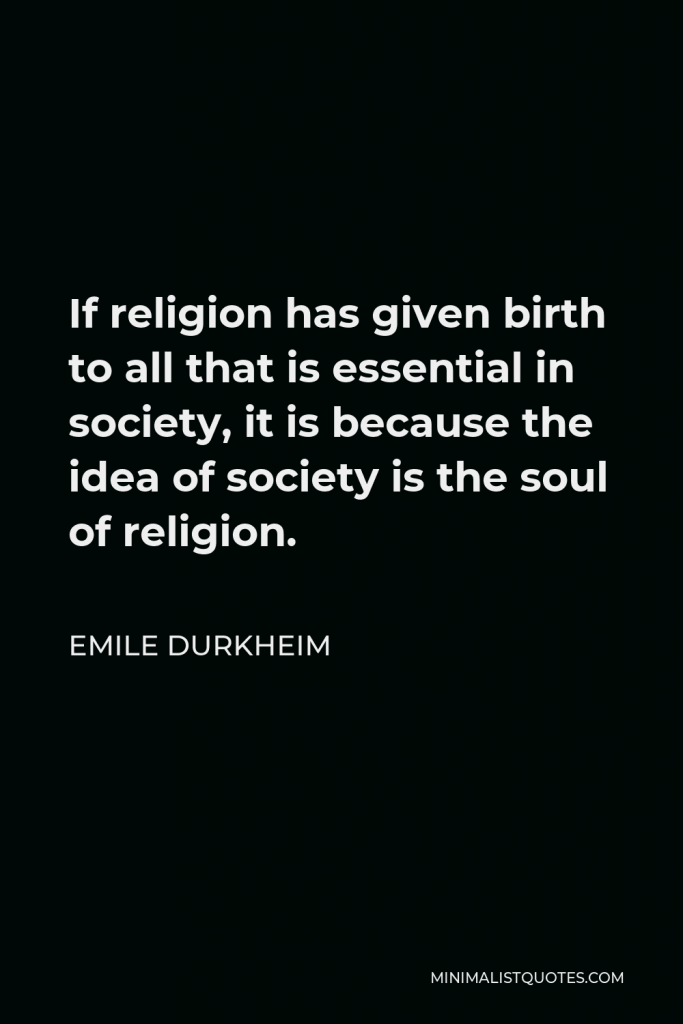

If religion has given birth to all that is essential in society, it is because the idea of society is the soul of religion.
EMILE DURKHEIM -





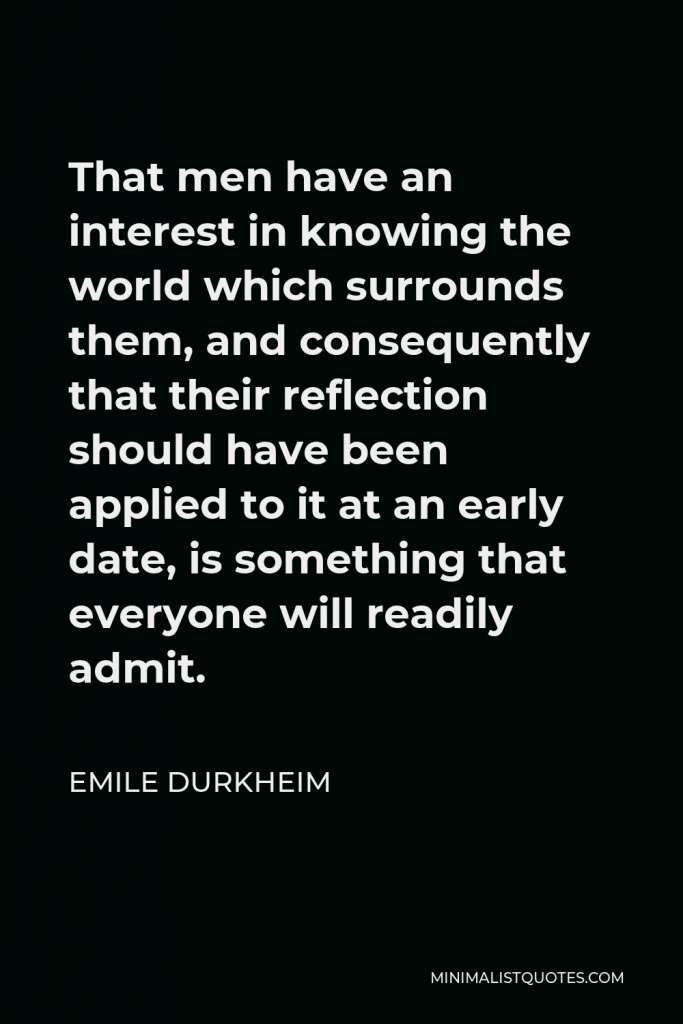

That men have an interest in knowing the world which surrounds them, and consequently that their reflection should have been applied to it at an early date, is something that everyone will readily admit.
EMILE DURKHEIM -







There is no sociology worthy of the name which does not possess a historical character.
EMILE DURKHEIM -





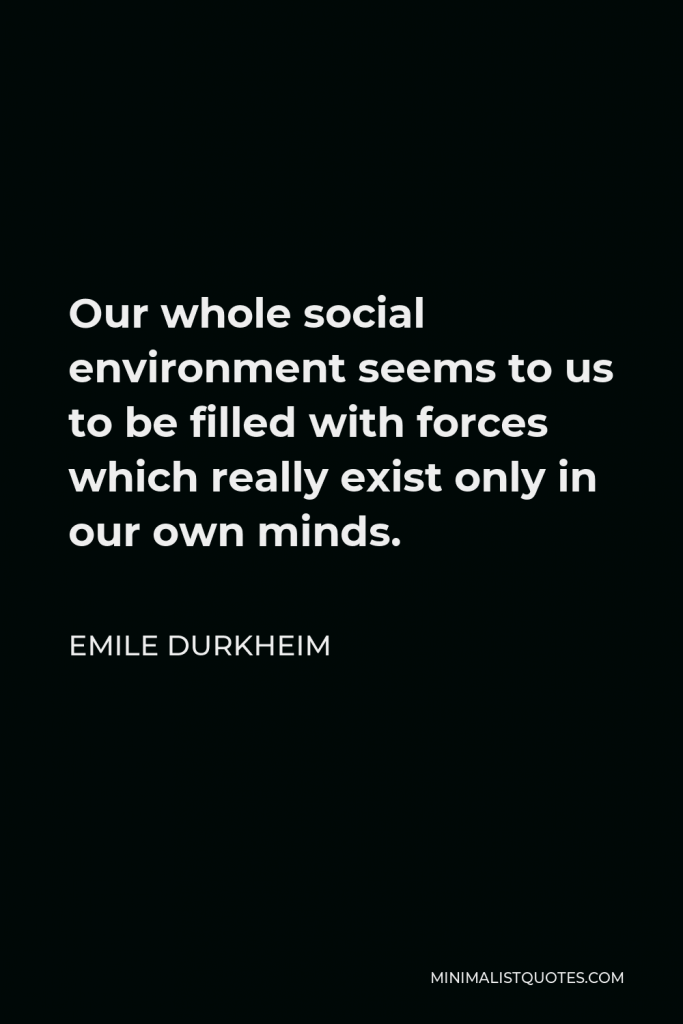

Our whole social environment seems to us to be filled with forces which really exist only in our own minds.
EMILE DURKHEIM -





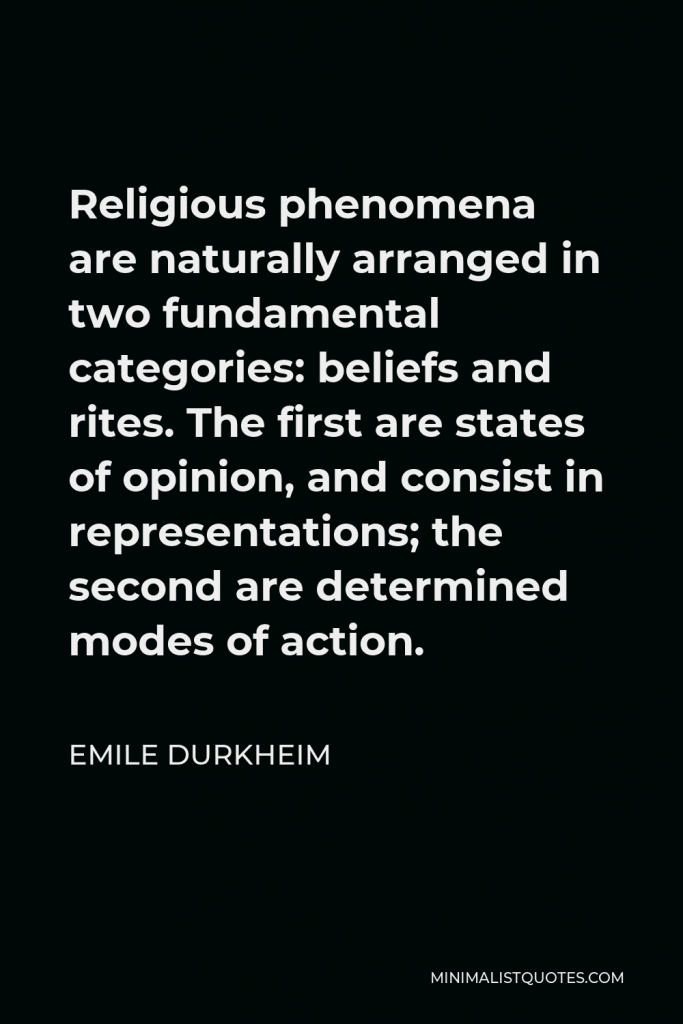

Religious phenomena are naturally arranged in two fundamental categories: beliefs and rites. The first are states of opinion, and consist in representations; the second are determined modes of action.
EMILE DURKHEIM -







A religion is a unified system of beliefs and practices relative to sacred things, that is to say, things set apart and forbidden-beliefs and practices which unite into one single moral community called a Church, all those who adhere to them.
EMILE DURKHEIM -







Irrespective of any external, regulatory force, our capacity for feeling is in itself an insatiable and bottomless abyss.
EMILE DURKHEIM
